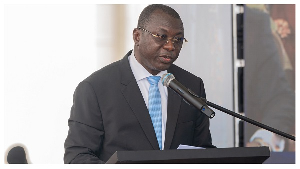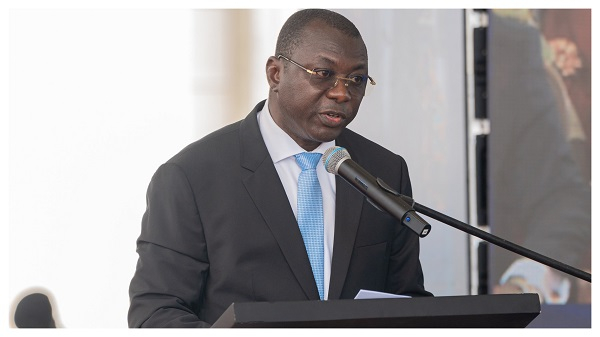 Dr Mohammed Amin Adam is Ghana’s former Minister of Finance
Dr Mohammed Amin Adam is Ghana’s former Minister of Finance
Former Minister of Finance, Dr Mohammed Amin Adam, has sharply criticised the recently approved GH¢1 daily Energy Sector Levy Amendment Bill, describing it as an unjustifiable burden on already struggling Ghanaians.
Speaking on the floor of Parliament on June 3, 2025, Dr Amin Adam distanced himself from the controversial levy, popularly referred to as the “Dumsor Levy” and urged the government to reconsider what he called a “regressive and insensitive” policy.
“Not long ago, they [the NDC] were celebrating the abolishment of taxes, but I’m sorry to say that all the taxes they abolished, when put together, did not even bring in GH¢5 billion. This government is now seeking to raise GH¢5.7 billion from this newly imposed levy,” he said.
“Mr. Speaker, during the budget debate, I indicated that despite the talk of abolishing taxes, this new administration was going to impose severe taxes on citizens and burden their already strained pockets,” the former minister added.
The levy, passed by Parliament under a certificate of urgency, imposes a GH¢1 charge per litre on all petroleum products.
According to the Minister of Finance, Dr Cassiel Ato Forson, the tax measure is intended to raise funds to pay off energy sector debts, particularly obligations to Independent Power Producers (IPPs) and stabilize electricity supply.
However, Dr Amin Adam, who served as finance minister under the Akufo-Addo-Bawumia administration, described the policy as “lazy policymaking”, asserting that it shifts the cost of poor governance and energy sector mismanagement onto the backs of ordinary citizens.
He also criticised the lack of transparency surrounding the levy’s design, implementation, and duration, warning that such approaches erode public trust and could deepen economic hardship.
“This levy is poorly timed and poorly targeted. It punishes the poor and working class while failing to address the root inefficiencies in the energy sector,” he added.
Dr Amin Adam called for a reassessment of government spending priorities and a more equitable fiscal strategy, one that cuts waste in the energy value chain and renegotiates expensive power purchase agreements, rather than imposing new taxes on the public.
The approval of the Energy Sector Levy Amendment Bill has sparked widespread backlash, with opposition parties, civil society organisations, and trade unions warning of potential protests and legal challenges. The Minority in Parliament boycotted the vote and has pledged to repeal the levy if elected in the upcoming general elections.
“The revenue from the 1 GhC Dumso levy is far bigger than all the taxes the NDC government abolished
– Dr Amin Anta, Former Finance Minister— SOLOMON AMOAKO (@AmoakoKwam) June 4, 2025
SP/MA
Watch the latest edition of BizTech below:
Click here to follow the GhanaWeb Business WhatsApp channel
